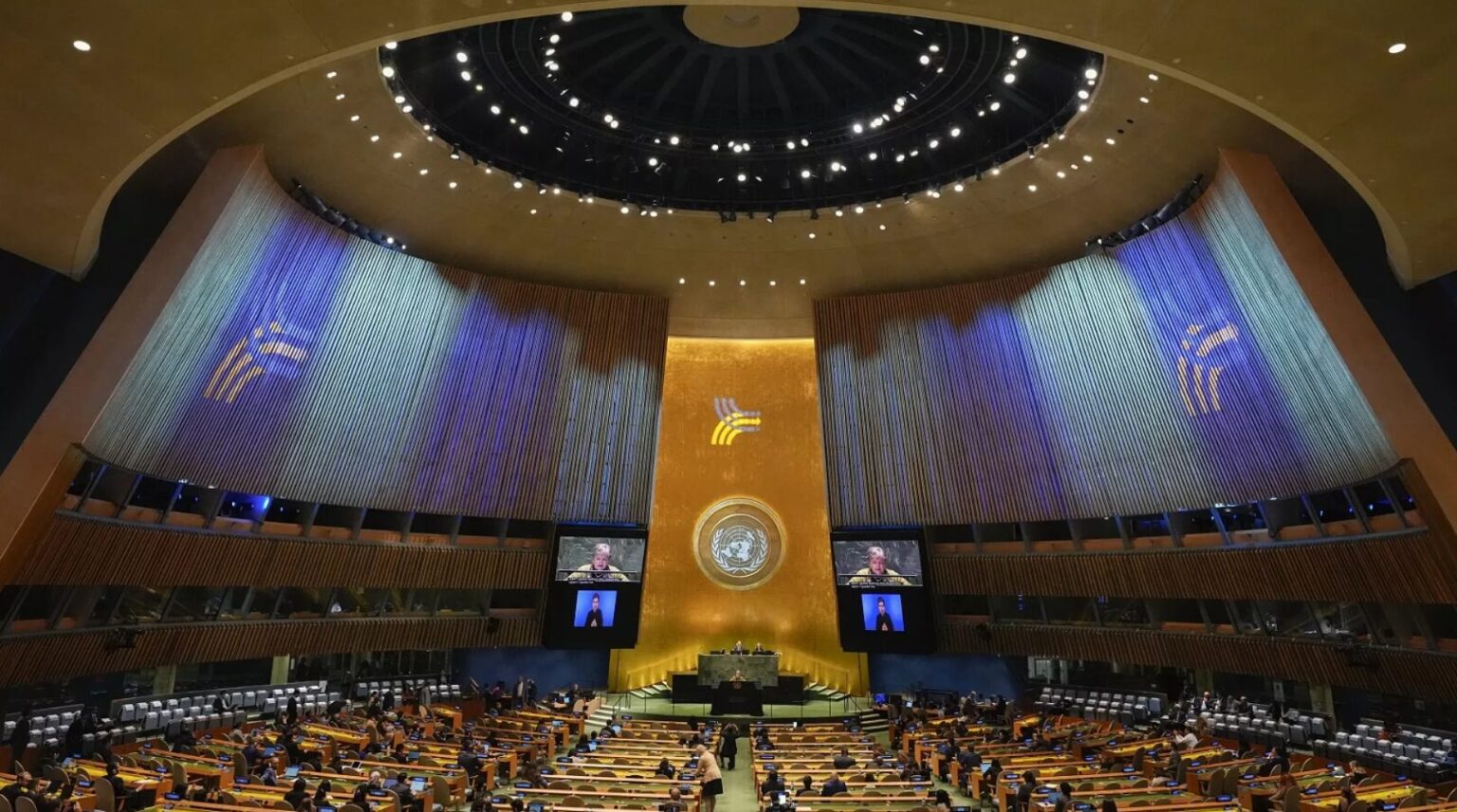|
Getting your Trinity Audio player ready...
|
The United Nations (UN) has taken a significant step toward shaping the future of artificial intelligence (AI) and digital technologies with the adoption of the Global Digital Compact (GDC). This move, announced as part of the broader Pact for the Future, seeks to create a global framework for digital cooperation and AI governance.
The UN General Assembly introduced this comprehensive framework during the Summit of the Future, and it is now set to have far-reaching implications for governments, tech companies, and international institutions alike.
Global Digital Compact: A Vision for Inclusive and Responsible AI
The Global Digital Compact is designed to serve as a guiding force in the rapidly evolving world of technology, with an emphasis on artificial intelligence. The initiative aims to strike a balance between fostering innovation and ensuring that the growth of AI technologies aligns with global ethical standards, human rights, and sustainable development goals.
This framework marks the UN’s first attempt to provide an overarching vision for AI governance, a growing necessity as advancements in technology outpace current regulations. According to UN Secretary-General Antonio Guterres, the GDC represents a “step-change towards more effective, inclusive, networked multilateralism.” Guterres emphasized the need for global cooperation to manage the risks and opportunities presented by digital technology, particularly AI.
The 66-page document outlines 56 broad actions that seek to promote ethical AI development, protect personal data, and ensure transparency in how AI is deployed. The GDC also outlines a vision for cybersecurity, equitable access to the internet, and how governments and companies can share responsibility in this new digital age.
AI Governance: What It Means for Tech Companies
The GDC places a significant focus on AI governance, outlining clear expectations for tech companies to prioritize transparency, responsibility, and accountability in the development and deployment of AI. The framework encourages companies to actively work against algorithmic bias and ensure that AI technologies are developed in ways that avoid discrimination or marginalization of certain groups.
For tech giants such as Google, Meta, and Microsoft, which have all made significant investments in AI, the GDC calls for increased corporate responsibility and transparency regarding their AI operations. This includes revealing how algorithms are developed and ensuring that AI systems respect data privacy laws and human rights principles.
The Compact also discusses the creation of global AI standards, which would regulate how AI technologies are tested and implemented. This move could significantly impact how tech companies operate across different regions, especially those that have less stringent AI regulations compared to others. In addition, it encourages companies to develop mechanisms for accountability, ensuring that they are prepared to answer for any unintended consequences or harmful impacts caused by AI technologies.
A Framework for Ethical AI Development
One of the primary concerns addressed by the GDC is the ethical implications of AI. In recent years, AI has been criticized for amplifying societal biases. From facial recognition technology disproportionately misidentifying people of color to AI-driven recruitment tools filtering out certain job candidates based on gender or race, these challenges have demonstrated the urgent need for ethical AI guidelines.
The Compact calls for tech companies and governments to work together to develop AI systems that are inclusive and ethically sound. In addition to tackling algorithmic bias, the GDC also encourages tech companies to prioritize data privacy and ensure that user data is not exploited without consent.
The UN also stresses the importance of public-private partnerships in ensuring ethical AI development. By fostering collaboration between government bodies and the private sector, the Compact aims to create a set of universal standards for AI that promote fairness and equality, while allowing innovation to thrive.
Ensuring Digital Inclusion and Equitable Access
Beyond AI governance, the Global Digital Compact addresses the wider challenges of digital inclusion and inequality in access to technology. As the world becomes increasingly interconnected, the UN is focused on closing the digital divide between developed and developing nations, ensuring that all people have equitable access to digital technologies and the opportunities they create.
The GDC urges governments and tech companies to prioritize investment in infrastructure that expands access to high-speed internet and digital education for underserved populations. This includes initiatives aimed at rural communities, economically disadvantaged regions, and marginalized groups.
Cybersecurity and Safeguarding Personal Data
With cyber threats on the rise, the GDC also tackles the issue of cybersecurity. The document emphasizes the need for stronger international cooperation to combat cybercrime and secure the world’s digital infrastructure. In particular, the UN calls for the adoption of universal cybersecurity standards that can be enforced across borders.
Tech companies are expected to enhance their efforts in safeguarding personal data and ensuring the security of their systems from potential breaches or cyberattacks. The GDC also emphasizes the need for transparency when it comes to data collection, calling for companies to clearly communicate to users how their data is being used and stored.
Looking Forward: Impacts on the Future of AI and Technology
The Global Digital Compact is seen as a bold step forward in global digital governance, offering a framework that seeks to balance technological innovation with ethical considerations and security. For tech companies, the Compact will likely create new regulatory requirements as governments work to adopt its principles into their domestic laws. This could lead to more stringent data privacy regulations, AI governance frameworks, and cybersecurity measures around the world.
In the longer term, the GDC could help shape the trajectory of AI development by encouraging the creation of fairer, more inclusive technologies. It also sends a clear message that the UN is prepared to play an active role in ensuring that the tech industry’s rapid evolution benefits society as a whole while safeguarding individual rights and freedoms.
As the GDC takes shape in the coming years, all eyes will be on how governments, tech companies, and civil society groups work together to create a future where technology is used as a force for good.
